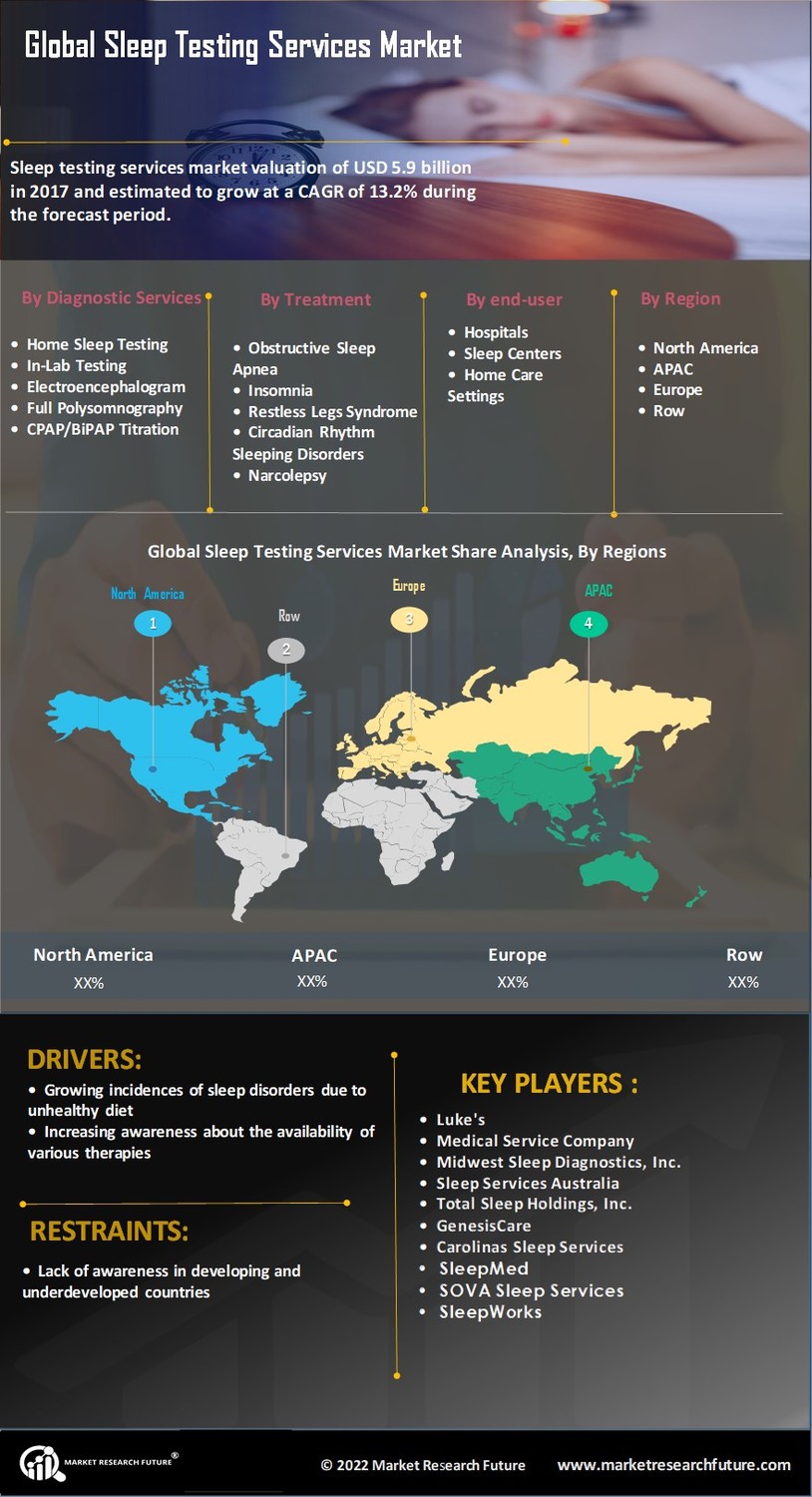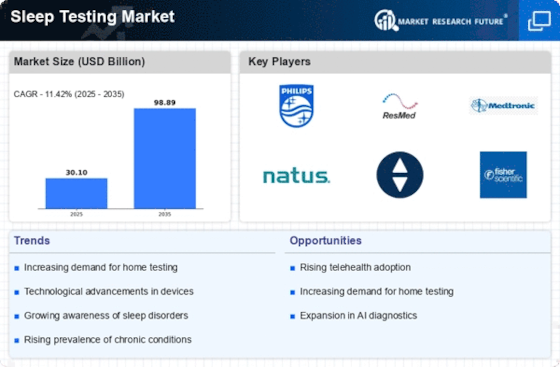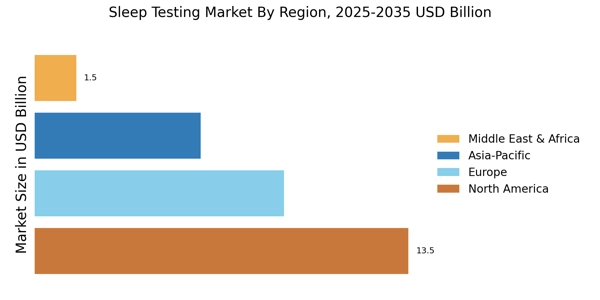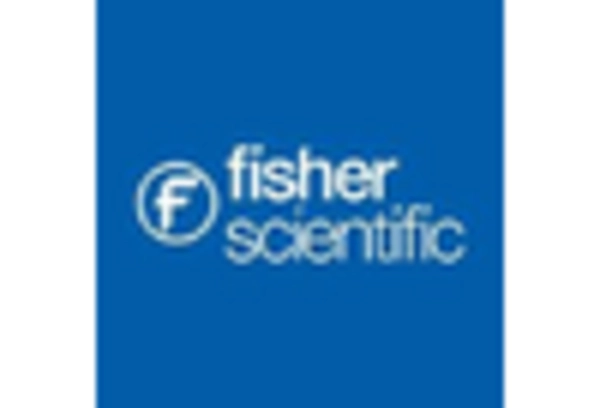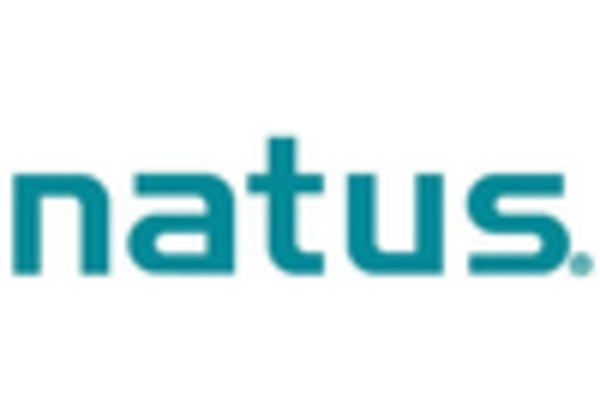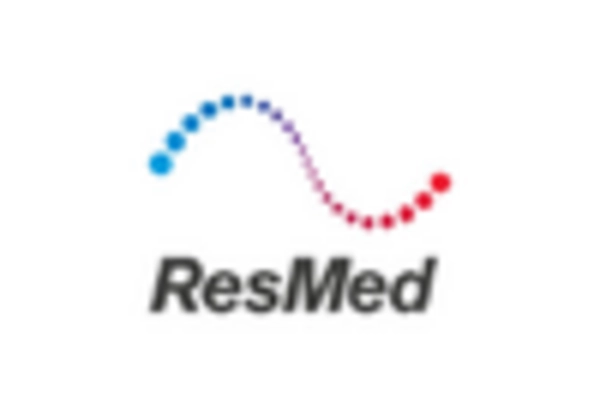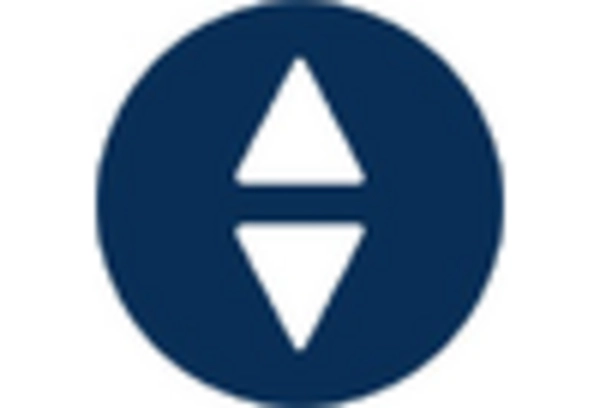Rising Prevalence of Sleep Disorders
The increasing prevalence of sleep disorders, such as sleep apnea and insomnia, is a primary driver of the Sleep Testing Market. Recent studies indicate that approximately 30% of adults experience some form of sleep disorder, leading to a heightened demand for diagnostic testing. This surge in cases necessitates the development and implementation of advanced sleep testing solutions. As awareness of the health implications associated with untreated sleep disorders grows, healthcare providers are more likely to recommend sleep testing as a standard procedure. Consequently, the Sleep Testing Market is expected to expand significantly, with projections suggesting a compound annual growth rate of around 7% over the next few years. This trend underscores the critical need for effective sleep disorder management and the role of sleep testing in achieving better health outcomes.
Growing Focus on Preventive Healthcare
The growing emphasis on preventive healthcare is significantly influencing the Sleep Testing Market. As healthcare systems shift towards proactive measures, the identification and management of sleep disorders have become integral components of overall health strategies. Preventive approaches not only aim to reduce the incidence of sleep-related issues but also seek to mitigate associated risks such as cardiovascular diseases and obesity. This shift is reflected in the increasing number of health insurance plans that cover sleep testing as part of routine health assessments. Consequently, the demand for sleep testing services is expected to rise, with market analysts projecting a steady growth trajectory. The integration of sleep testing into preventive healthcare frameworks highlights its importance in promoting long-term health and wellness.
Increased Investment in Sleep Research
The Sleep Testing Market is experiencing a surge in investment directed towards sleep research. Governments and private organizations are recognizing the critical need to understand sleep disorders better and their impact on public health. This influx of funding is facilitating the development of innovative testing methodologies and treatment options. Research initiatives are focusing on the genetic, environmental, and lifestyle factors contributing to sleep disorders, which could lead to more personalized and effective testing solutions. As a result, the market is likely to benefit from enhanced research outcomes, potentially leading to breakthroughs in sleep disorder management. The increased investment in sleep research not only supports the growth of the Sleep Testing Market but also fosters collaboration between academic institutions and healthcare providers.
Rising Consumer Awareness and Education
Consumer awareness regarding the importance of sleep health is on the rise, significantly impacting the Sleep Testing Market. Educational campaigns and resources are increasingly informing the public about the consequences of untreated sleep disorders. As individuals become more knowledgeable about the symptoms and risks associated with poor sleep quality, they are more likely to seek professional help. This heightened awareness is driving demand for sleep testing services, as people recognize the value of early diagnosis and intervention. Market data suggests that the number of individuals seeking sleep testing has increased by approximately 15% in recent years. This trend indicates a shift in consumer behavior, where proactive health management is prioritized, thereby contributing to the overall growth of the Sleep Testing Market.
Technological Innovations in Sleep Testing
Technological advancements play a crucial role in shaping the Sleep Testing Market. Innovations such as portable sleep monitors and advanced polysomnography systems have revolutionized the way sleep disorders are diagnosed. These technologies not only enhance the accuracy of sleep studies but also improve patient comfort and convenience. For instance, the introduction of wearable devices has made it possible for individuals to undergo sleep testing in their own homes, thereby increasing accessibility. The market for these devices is projected to grow, with estimates indicating a potential increase in revenue by over 20% in the coming years. As technology continues to evolve, the Sleep Testing Market is likely to witness further enhancements, leading to more efficient and effective testing methods.
